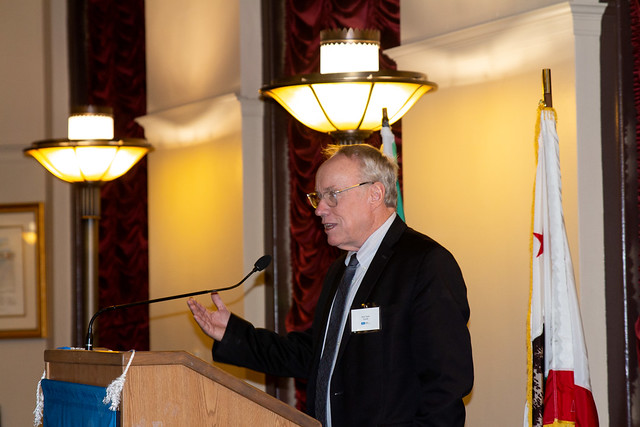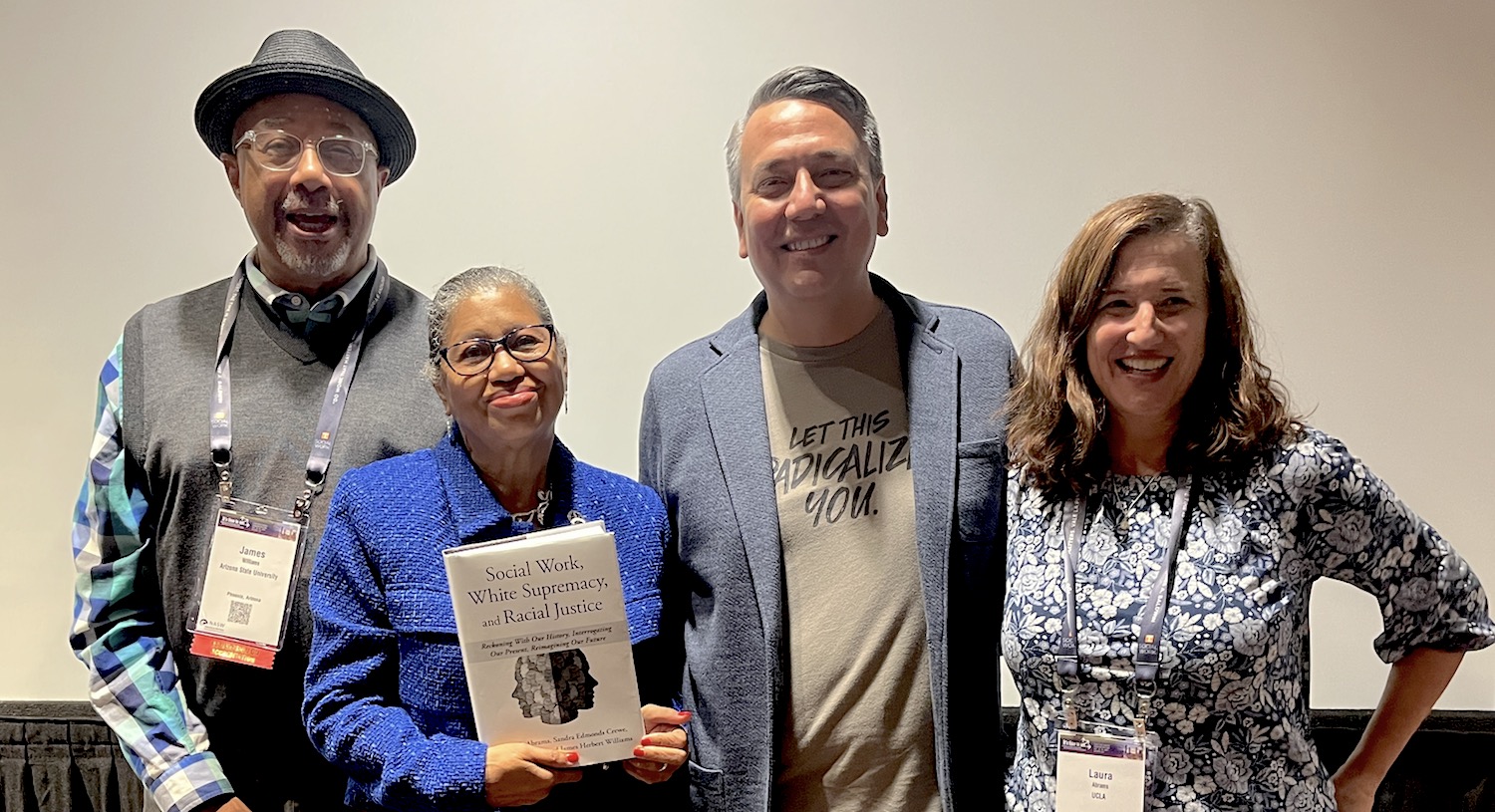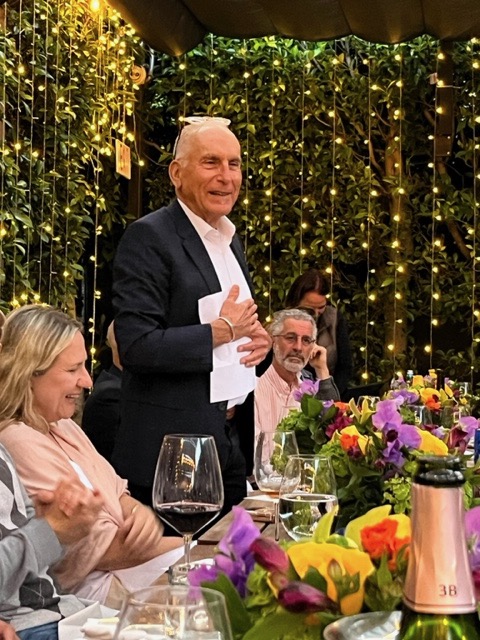By Stan Paul
A celebration of life for former UCLA Social Welfare Associate Professor Douglas G. Glasgow, a widely recognized scholar on welfare and underclass formation in urban cities, will be held Oct. 7 at Howard University in Washington, D.C. He died Aug. 9 at age 94.
Glasgow was the first Black tenured faculty member in the UCLA School of Social Welfare — now part of the UCLA Luskin School of Public Affairs. He was a member of the faculty from 1969 to 1971. In 1970, Glasgow served as director of the UCLA Center for Afro-American Studies, which later became the UCLA Ralph J. Bunch Center for African American Studies.
“Doug was a good friend and colleague when I was a lecturer and he an associate professor in the School of Social Welfare,” said emeritus professor Alex Norman. “He was the first African American to receive tenure at the School — I was the second.”
Glasgow was one of the founders of the National Association of Black Social Workers and was former vice president of operations of the National Urban League during his time in the nation’s capital.
“He was beloved as a teacher and respected as a scholar,” Norman said.
Norman also noted that Glasgow, who was published in numerous professional journals, coined the phrase “the Black underclass,” the title of his powerful and insightful book based on research he conducted in Watts in the 1960s following the Watts riots. Updated in 1975, his research drew attention to young Black males labeled as “problem” youths who constituted a perpetual underclass that, he said in his book, “represent the fastest-growing portion.”
“This book was born in flames, in an inferno that raged for four August days in 1965. The place was Watts, Los Angeles,” Glasgow begins. Amid this tumultuous historical turning point in Los Angeles, Glasgow writes that he sought to “examine the lives of inner-city young men through their perceptions of their life experiences.”
In his preface, Glasgow wrote that “this book is not intended as a definitive study of the Black underclass. Rather, by concentrating on a group of representative young men and their individual (and collective) confrontations with mainstream institutions, it attempts to convey the human experience of those who are denied upward mobility and are processed into underclass status.”
Glasgow also wrote that his hope was that “everyone concerned with the human, social and economic waste represented by America’s inner cities will benefit from reading this book.”
Joseph A. Nunn, who earned his undergraduate, MSW and Ph.D. degrees at UCLA, also recalled Glasgow fondly from his graduate student days in the 1960s.
“Dr. Glasgow was the only tenure-track faculty, an assistant professor, when I arrived,” a time of anti-war and anti-discrimination marches and protests, he said. During that time, Nunn and other students demanded that a tenured Black professor be added.
“He was promoted to associate professor following the activities of the Black Caucus,” said Nunn, who would later become a longtime director of field education at UCLA Luskin.
Glasgow left UCLA for Howard University’s School of Social Work, where he was dean from 1972 to 1975. While there, he led faculty and students in creating the first comprehensive, accredited, graduate-level curriculum modeled from a Black perspective.
He is included on the National Association of Social Workers Foundation Pioneer roster, which notes his many accomplishments and affiliations. Among these are visiting professor at the University of Ghana at Legon and Makerere University in Uganda. During his time in Africa, Glasgow served as a policy analyst and consultant on social development to the Ministers of Social Welfare in Ghana and with the Ministry of Rehabilitation in Ethiopia.
In the United States, he was a visiting professor at the University of Maryland and taught at Norfolk State University, where he helped start its social work department.
Glasgow also helped found community-based and national organizations that include the Black Men’s Development Center and the United Black Fund/United Way. In Washington, he served on a number of boards and commissions, including the District of Columbia’s Mental Health Reorganization Commission, the Advisory Board on Mental Health and the Teen Pregnancy Commission.
He was a resident scholar for the 21st Century Commission on African-American Males and was a scholar in residence at the E. Franklin Frazier Center for Social Research at Howard University, where he remained actively engaged in research and policy studies into his later years.
Glasgow was born in New York City, the youngest of 13 children of Matthew and Angelin Glasgow. He grew up in Brooklyn and received his undergraduate degree from Brooklyn College in 1959 and MSW from Columbia University in 1961, followed by his DSW from the University of Southern California in 1968. He later worked as a youth therapist at Kaiser Permanente Los Angeles.
His activist work as a student led to friendships with civil rights advocates including Harry Belafonte, Sidney Poitier, Jesse Jackson, John Lewis, Andrew Young, Ronald Brown, Whitney Young and “so many other greats while publishing articles, consulting, working and always selflessly trying to make a positive difference,” said his daughter Karen Glasgow.
“He was a gifted lobbyist, orator, writer, cook, singer, storyteller, visionary, father, partner, friend, bridge builder and a very humble man,” she said. “He only wanted his legacy to be remembered as a catalyst to make others pick up where he left off. When asked what he was passionate about, his reply was ‘the eradication of injustice.’”
Glasgow is predeceased by his wife, Frieda Glasgow, and a daughter, Rickie Glasgow. He is survived by his daughter Karen Glasgow; his grandson Douglas R. Glasgow; his partner Cheryl McQueen; and great grandchildren, nieces, nephews, grandnieces and grandnephews.
In his memory, the family suggests that donations be made to the National Association of Black Social Workers in his name.
More information is available via the family obituary and tribute wall online.



